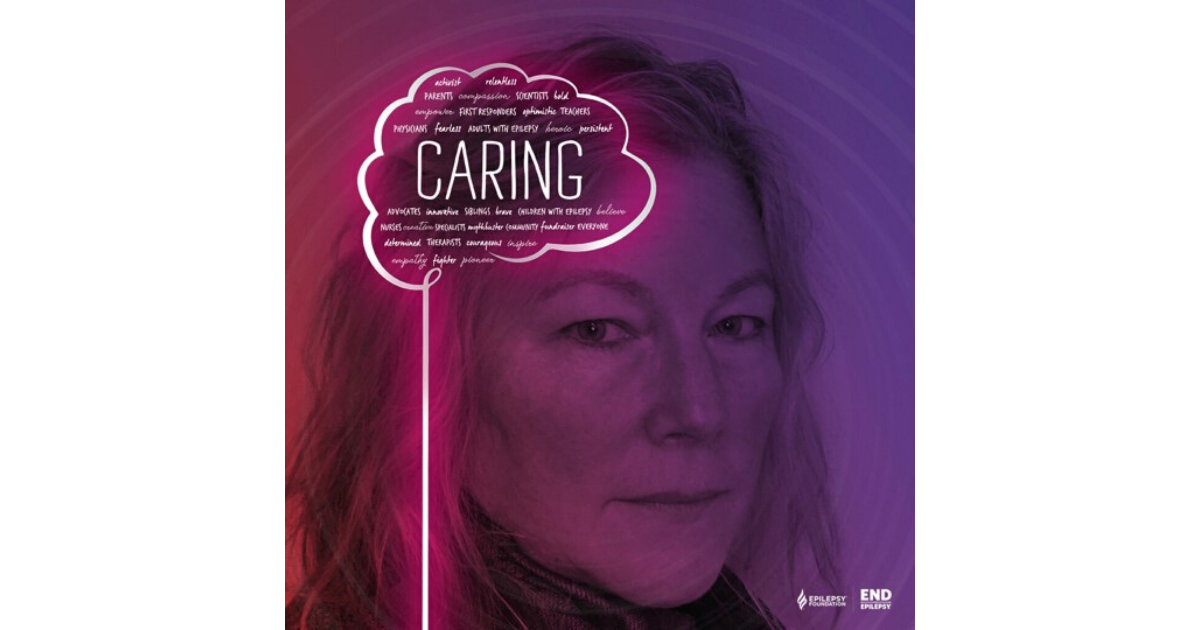Innovator Spotlight on Curadite: Jody McNannay

Epilepsy News From: Tuesday, January 28, 2020
Jody McNannay is the co-founder of Curadite, a medication management platform incorporating intelligent packaging, patient reminders, and a clinician dashboard for the epilepsy community. This past year, Curadite was awarded an Epilepsy Foundation Shark Tank prize to optimize the prototype presented at the competition. Just this past month, the company won the People’s Choice award at the Oregon Bioscience Conference. We sat down with Jody to learn a little bit more about what inspired her to co-found Curadite and her own personal connection to epilepsy.
How are you connected to epilepsy?
My daughter, Arianna, was diagnosed with absence seizures when she was seven. At the time, we didn’t know that this was epilepsy. The doctors told us she had a seizure disorder, apparently not wanting to use the “e-word” with us. We were assured that this was a phase and that she would most likely outgrow it. At the age of 18, however, the seizures progressed, and we witnessed her first tonic-clonic seizure. We were not ready for it.
What do you wish your doctors had told you?
The doctors were giving us the Pollyanna (extremely optimistic) version – emphasizing that 70% of kids with absence seizures grow out of it by the age of 18. I wish that the doctors had also told us about the 30% of kids who don’t. I wish that they had told us that the seizures might get worse and that there are things we could do to mitigate those risks. I wish that they had stressed more the seriousness of medication adherence.
What do you mean?
Arianna was lucky growing up. Unlike others in the community, the medications were keeping her seizures under control. The medications were annoying in the sense that she would get 300 pills at once that we would have to sort. She had to take 10 pills a day (5 in the morning and 5 at night). On top of that, she had other medications for another condition.
When she turned 15, she wanted more independence. I’d been trying to balance the nagging that moms have to do with giving her the opportunity to take responsibility, so I let her take over her medication regimen. It turned out that she was missing some of the doses. She wasn’t missing them on purpose – but taking that many pills per day at specific times of day every single day without mistakes happens. I wish I’d known that those delayed doses would end up triggering more severe seizures.
What did you decide to do?
We searched the market for a solution to help Arianna track her medications, but there wasn’t anything out there. The smartphone apps weren’t smart enough to know whether medication had been taken. The plastic pillboxes that beep and flash to remind you to take medication only work if you’re nearby. We realized there was no commercially available solution. My husband and I knew there had to be a way for us to track the medications without Arianna sacrificing her independence. Building on our experience working in the bioscience world, we realized it was time to leave our jobs and co-found Curadite.
What is Curadite?
Curadite is a startup devoted to making medication adherence simple. We wanted to create a platform that would use intelligent packaging to timestamp when medication is taken. We can work with a pharmacy distributor to package medication or the family/doctor can package the doses themselves. Reminders are only sent via phone if someone doesn’t take the dose, and patients can opt to let loved ones know when they’ve taken their medication. All the timestamps are stored in the cloud, and the data is available to share with a doctor, a partner, a parent — the user decides. My daughter is currently beta-testing the product, and I haven’t driven her too crazy, which is a good endorsement.
How have you interacted with the Epilepsy Foundation?
From a company standpoint, the Epilepsy Foundation helped us in multiple ways — from forcing us to further develop an epilepsy-centric perspective on our business strategy and connecting us to other thought leaders in the community to supporting us financially when we won the Epilepsy Foundation Shark Tank Competition in 2019.
On a more personal note, the Foundation made us feel less alone. People don’t talk about epilepsy. After spending years facing the challenges of epilepsy on our own, getting introduced to the local Epilepsy Foundation made us realize that there was a passionate network of people who are working together to improve the lives of those with epilepsy. It’s because of the people and the efforts of the Foundation that I joined the board for the Epilepsy Foundation Oregon and Epilepsy Foundation Washington.
Is there anything else that you would like to add?
I have a lot of optimism. Twenty years ago, the skepticism of immunotherapeutics was pervasive. Today, it’s hard to have a conversation around cancer that doesn’t involve them. Ten years ago, no one would have believed that CBD (cannabidiol) would have been approved by the FDA (U.S. Food and Drug Administration) and now we have Epidiolex®.
Six months ago, I witnessed the Epilepsy Foundation Shark Tank, which showcased unique ideas from new devices for seizure detection to virtual reality trainings to improved clinical decision tools. There is so much innovation happening and new opportunities for both people living with epilepsy and those cheering on the sidelines. My whole team is honored to be in a position to support Arianna and the much broader epilepsy community.
Authored by
Sonya Dumanis PhD
Reviewed by
Epilepsy Foundation Research
Reviewed Date
Tuesday, January 28, 2020
